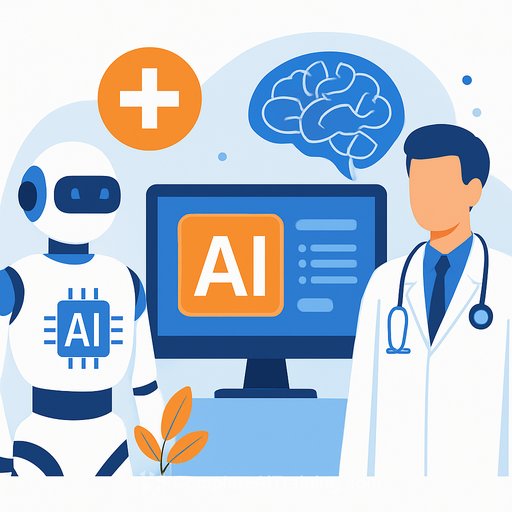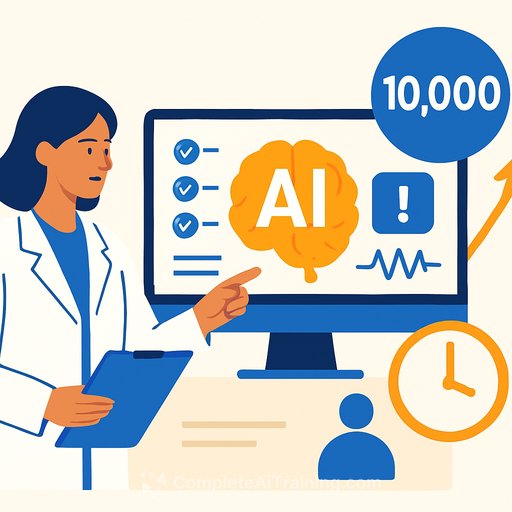How the UAE is using AI to transform healthcare
The UAE has moved from talking about AI to operationalising it. Every major ministry and sector now has a chief AI officer (CAIO), turning AI from an IT project into a leadership mandate.
Healthcare shows why this matters. Costs are rising, populations are aging, and patients expect personalised care. AI is being applied with a clear focus: better outcomes, higher efficiency, and sustainability.
From tech rollout to strategic transformation
AI leadership in the UAE starts with intent. As Ahmed Al Houqani, CAIO at the General Civil Aviation Authority, said: "Being a chief AI officer is less about technology implementation and more about strategic transformation. CIOs or CTOs often focus on how to implement, but for us it's about why and what's next."
That shift-from tools to direction-is what gives hospitals and regulators a durable path. It keeps teams focused on outcomes instead of chasing features.
Data first: trust before scale
H.E. Amal Abdulrahim, assistant undersecretary for the support services sector and CAIO at the Ministry of Climate Change and Environment, began by addressing fear and confusion around AI. "Each sector had common fears about AI, so my approach was to meet them with empathy," she said. "Before asking how to implement AI, we had to ask why. Why do we collect data and what benefits can we deliver?"
Her team rebuilt the data strategy: collect with purpose, study what matters, then greenlight high-impact use cases. That pipeline now supports six AI projects aimed at saving time, cutting waste, and improving decisions.
Workforce readiness as policy
The UAE invested early in education so people can use AI responsibly. Marwan Al Zarouni, strategic advisor and CAIO at Dubai's Department of Economy and Tourism, noted: "We were the first country to appoint a minister of AI, and we launched programmes specifically for universities to prepare an AI-ready workforce. Education is empowerment and consistency across government organisations ensures that AI is not just a technical initiative, but a leadership mandate."
For healthcare leaders, this means clinical, operational, and administrative teams all need AI literacy-not just data teams.
Healthcare impact: outcomes, efficiency, trust
AI can support precision diagnostics, triage, and personalised treatment plans. But adoption depends on trust. Transparency, clear governance, and patient communication sit at the centre.
As Al Houqani put it: "People need to see AI as a trusted companion. Change management takes time, but without it, disruption cannot succeed."
The numbers-and what they miss
PWC estimates the Middle East could gain about 2% of global AI benefits by 2030-roughly $320bn-with the UAE seeing an impact near 14% of GDP and Saudi Arabia over $135bn. Source.
Leaders in the UAE argue that value isn't just revenue. It's fewer manual tasks, faster throughput, less waste, and better care delivered sooner.
A governance model built in
By embedding CAIOs across ministries, the UAE treats AI as part of how the system runs, not a side project. In healthcare, that means AI isn't confined to the IT department-it informs policy, procurement, training, and clinical operations.
As Al Zarouni said: "If we ask the right questions and build the right mindset, AI will not just be a tool, it will be part of our national DNA."
What healthcare leaders can do now
- Define the "why" first: target 3-5 measurable outcomes (e.g., reduced readmissions, faster imaging turnaround, fewer denials).
- Build a clean data pipeline: standardise coding, ensure lineage, and establish access controls and audit trails.
- Start with governed pilots: pick low-risk, high-volume workflows (prior auth, capacity forecasting, discharge planning), measure, then scale.
- Protect patients: consent, explainability for clinical use, bias checks on representative datasets, and continuous model monitoring.
- Create a clinical AI committee: clinicians, data science, legal, ethics, and ops reviewing use cases and outcomes monthly.
- Standardise procurement: require evidence of model performance, drift monitoring, integration with EHR, and security attestations.
- Upskill teams: train clinicians and admins on prompts, validation, and failure modes; make AI literacy part of onboarding.
Policy and public guidance
For context on national direction, see the UAE Strategy for Artificial Intelligence. Official resource.
Build your team's AI capability
If you are planning structured training for clinical, admin, or leadership teams, explore role-based AI learning paths. Courses by job.
Your membership also unlocks:






